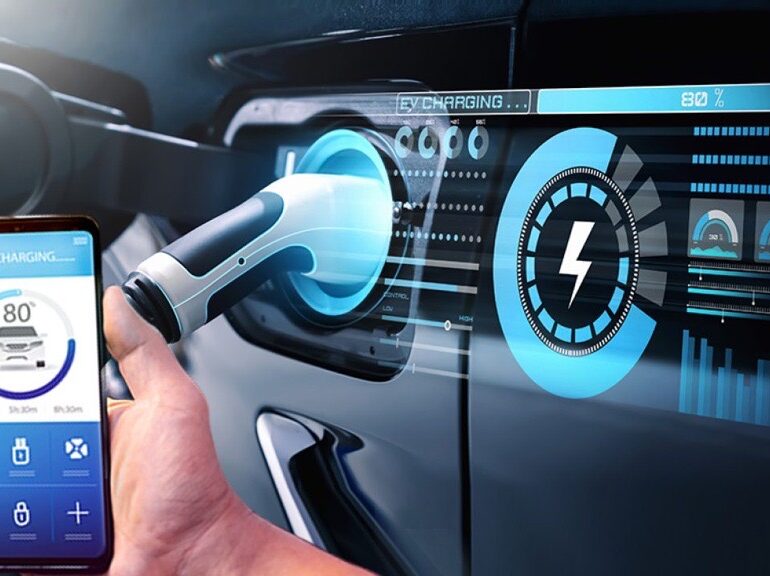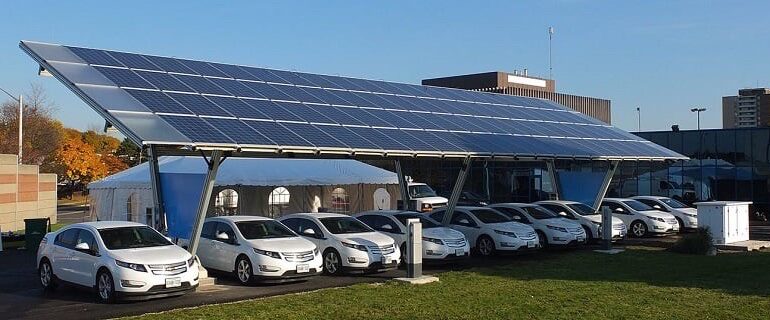Solar charging for electric cars is becoming a popular topic of interest among researchers and clean energy enthusiasts. While some electric vehicle owners rely solely on grid power to charge their cars, others are looking for alternative energy sources to power their cars, such as solar energy.
Here’s how solar charging for electric cars is possible:
- Solar panels: To charge an electric car with solar energy, you’ll need solar panels. Solar panels are made up of photovoltaic cells that convert sunlight into electricity. These panels can be mounted on the roof of your home or garage, or even on a standalone structure designed specifically for solar charging.
- Inverter: Solar panels produce DC (direct current) electricity, which must be converted to AC (alternating current) electricity to charge your electric car. An inverter is required to convert the DC electricity produced by the solar panels into AC electricity that can be used to charge your car.
- Charge controller: A charge controller is a device that regulates the flow of electricity from the solar panels to the inverter. It prevents overcharging and undercharging of the car’s battery, ensuring that it is charged efficiently and safely.
- Battery storage: Solar panels generate electricity only when the sun is shining. To ensure that your electric car is charged even when the sun isn’t shining, you’ll need a battery storage system. This system stores excess energy generated by the solar panels during the day, which can then be used to charge your car at night.
- Electric vehicle supply equipment (EVSE): Finally, you’ll need an EVSE, also known as a charging station, that is compatible with your electric car. The EVSE connects to the inverter and allows you to charge your car using the electricity generated by the solar panels.
While solar charging for electric cars is possible, it does require a significant upfront investment in solar panels, battery storage, and other equipment. However, over time, the cost of solar panels and other equipment is expected to decrease, making solar charging for electric cars more affordable and accessible.
In conclusion, solar charging for electric cars is a viable and sustainable option for those who want to reduce their carbon footprint and reliance on grid power. By harnessing the power of the sun, electric car owners can charge their cars with clean and renewable energy, while also reducing their energy bills and contributing to a cleaner and healthier environment.




